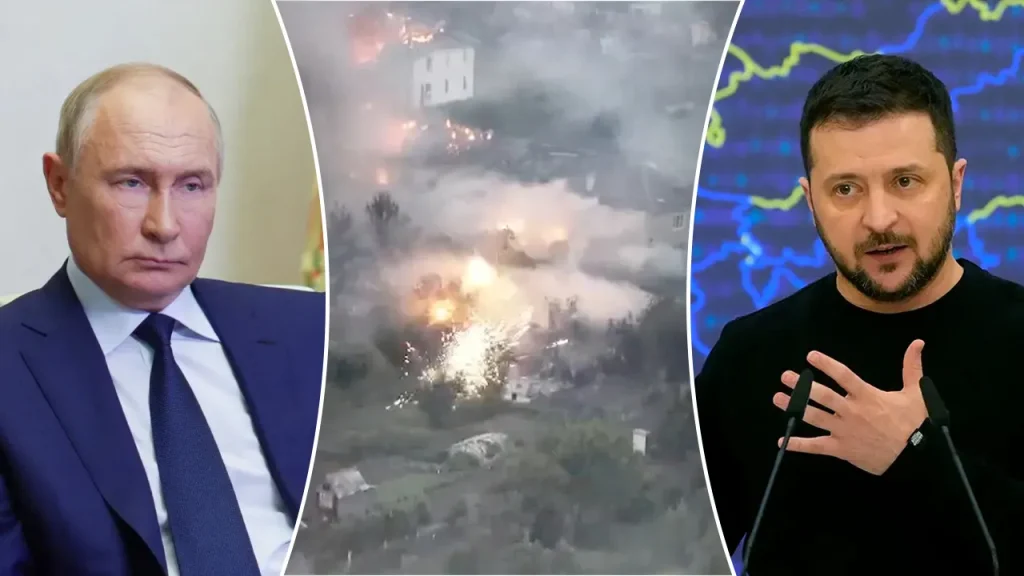The Kremlin has dismissed concerns about Russian President Vladimir Putin’s upcoming trip to Mongolia, despite the fact that Mongolia is a member of the International Criminal Court (ICC) which has issued an arrest warrant for Putin over alleged involvement in the abduction of Ukrainian children. This arrest warrant means that any visit to a Rome Statute signatory, such as Mongolia, could subject Putin to arrest. The Kremlin spokesperson, Dmitry Peskov, assured reporters that there were no worries and that all aspects of the visit were carefully prepared. Putin has previously avoided visiting countries that are signatories of the Rome Statute to prevent being subject to ICC jurisdiction.
The attention to Putin’s trip to Mongolia comes after he decided against attending a BRICS economic bloc conference in South Africa due to concerns about the arrest warrant. South African President Cyril Ramaphosa reiterated Russia’s declaration that an arrest would be seen as a declaration of war, and it would be inconsistent with the South African Constitution to risk engaging in war with Russia. Putin ultimately sent his foreign minister Sergei Lavrov to attend the conference in his place. Now, Putin is planning to visit Mongolia on September 3 at the invitation of Mongolian President Ukhnaagiin Khurelsukh to commemorate the 85th anniversary of a joint military victory over Japanese forces. The two leaders will discuss developing comprehensive strategic partnerships and sign bilateral documents during the visit.
Ukraine has responded to the news of Putin’s visit to Mongolia by calling on Mongolian officials to adhere to their ICC commitments and follow through on Putin’s arrest. Ukraine referred to Putin as a war criminal and highlighted the abduction of children as just one of the crimes he has committed since Russia invaded Ukraine in February 2022. The Ukrainian Foreign Ministry called on Mongolian authorities to execute the mandatory international arrest warrant and hand over Putin to the International Criminal Court in The Hague. Concerns are mounting as Putin prepares to visit a Rome Statute signatory country where he could potentially face arrest under the ICC warrant.
The tension surrounding Putin’s upcoming trip to Mongolia stems from his avoidance of countries that are signatories of the Rome Statute to prevent being subject to ICC jurisdiction. Russia, along with other major nations such as the U.S., China, India, and Israel, is not a signatory and thus does not answer to the ICC. However, any visit to a Rome Statute signatory country would expose Putin to arrest. The concern over Putin’s trip arose during his planned visit to South Africa for a BRICS conference, where South African President Cyril Ramaphosa tried to dodge the issue by stating that risking war with Russia would be inconsistent with the South African Constitution. Ultimately, Putin decided not to attend the conference in person and sent his foreign minister instead.
The Kremlin has tried to downplay concerns about Putin’s trip to Mongolia, emphasizing the strong dialogue and friendship between Russia and Mongolia. Putin’s visit is planned to commemorate a joint military victory over the Japanese forces and strengthen bilateral partnerships with Mongolia. However, the looming threat of arrest under the ICC warrant for alleged crimes committed during the invasion of Ukraine casts a shadow over the visit. Ukraine is urging Mongolian authorities to adhere to their obligations under the ICC and hand over Putin to face justice for his actions. The situation is fraught with tensions between Russia, Ukraine, and Mongolia, as Putin’s visit poses potential diplomatic and legal challenges for all parties involved.


